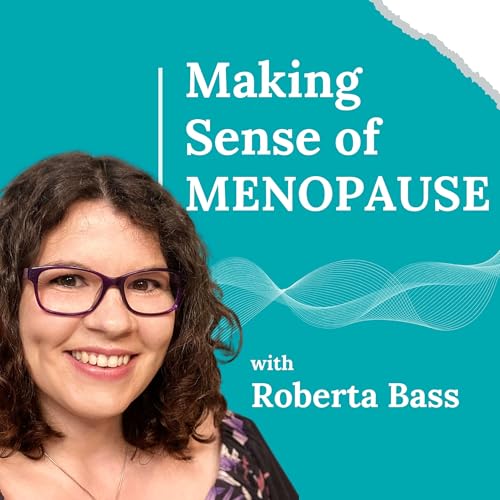
Emotional Eating: Why It Happens and How to Take Back Control
カートのアイテムが多すぎます
カートに追加できませんでした。
ウィッシュリストに追加できませんでした。
ほしい物リストの削除に失敗しました。
ポッドキャストのフォローに失敗しました
ポッドキャストのフォロー解除に失敗しました
-
ナレーター:
-
著者:
このコンテンツについて
In this episode of Making Sense of Women's Health, Roberta Bass dives into the complex topic of emotional eating—something many of us struggle with, especially during times of stress, boredom, or overwhelm.
Roberta explains why emotional eating isn’t about willpower. Instead, it’s driven by hormones, stress, sleep patterns, and deeply ingrained subconscious habits. She shares insights into how emotional eating develops, why it often feels worse in midlife, and offers practical strategies to help you break the cycle without guilt or restriction.
What You'll Learn in This Episode:
- The difference between emotional hunger and physical hunger
- How hormones like oestrogen, progesterone, and cortisol influence cravings
- The role of stress, poor sleep, and blood sugar imbalances in emotional eating
- Why emotional eating patterns are often rooted in subconscious habits from childhood
- How to recognise your emotional eating triggers
- Practical strategies to help you reprogram your response to stress without turning to food
Key Takeaways:
- Identify Triggers: Notice when you’re reaching for food out of stress, boredom, or habit.
- Pause Before Eating: Ask yourself, “Am I truly hungry or seeking comfort?”
- Balance Blood Sugar: Eat meals with a mix of protein, healthy fats, and fibre to prevent energy crashes.
- Manage Stress: Incorporate breathing exercises, mindfulness, or short walks to reduce cravings.
- Prioritise Sleep: Poor sleep increases hunger hormones, making emotional eating more likely.
- Move Your Body: Even a 10-minute walk can disrupt the emotional eating cycle.
How CONTROL Can Help:
If emotional eating feels deeply ingrained, it’s likely tied to subconscious patterns that willpower alone can’t shift. This is where the CONTROL method comes in.
CONTROL helps you:
- Uncover the subconscious beliefs driving your emotional eating
- Reprogram automatic responses to stress and emotions
- Break the cycle so you’re no longer fighting cravings—you simply don’t feel the same pull toward food for comfort
If emotional eating is something you’ve struggled with for years and you’re ready to make a real change, CONTROL could be the missing piece.
Ready to Take Action?
- Pause before your next snack and ask, “Am I really hungry?”
- Notice your triggers—write them down if it helps.
- Move your body for five minutes instead of reaching for food when stressed.
How I Can Help:
If you’re struggling with emotional eating, stress, poor sleep, or habits that feel out of your control, I can help.
As a Women’s Health Physiotherapist, Menopause Mentor, and CONTROL Practitioner, I support women in:
- Breaking free from emotional eating and other subconscious habits
- Managing stress, improving sleep, and feeling more in control
- Addressing health challenges linked to hormones, menopause, and lifestyle changes
Visit Th
www.thriveandshinewomenswellness.co.uk
Free Masterclass: Is Perimenopause Causing Your Symptoms? → Click here to watch
Supporting women’s health transitions with physiotherapy, menopause mentoring, Pilates and subconscious mindset tools.
Follow, subscribe and share the Making Sense of Menopause podcast to help more women access the support they deserve.


